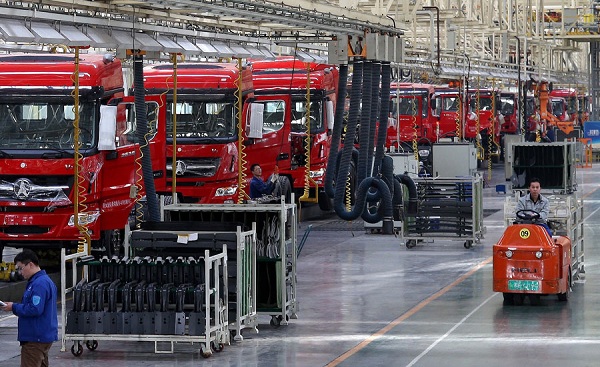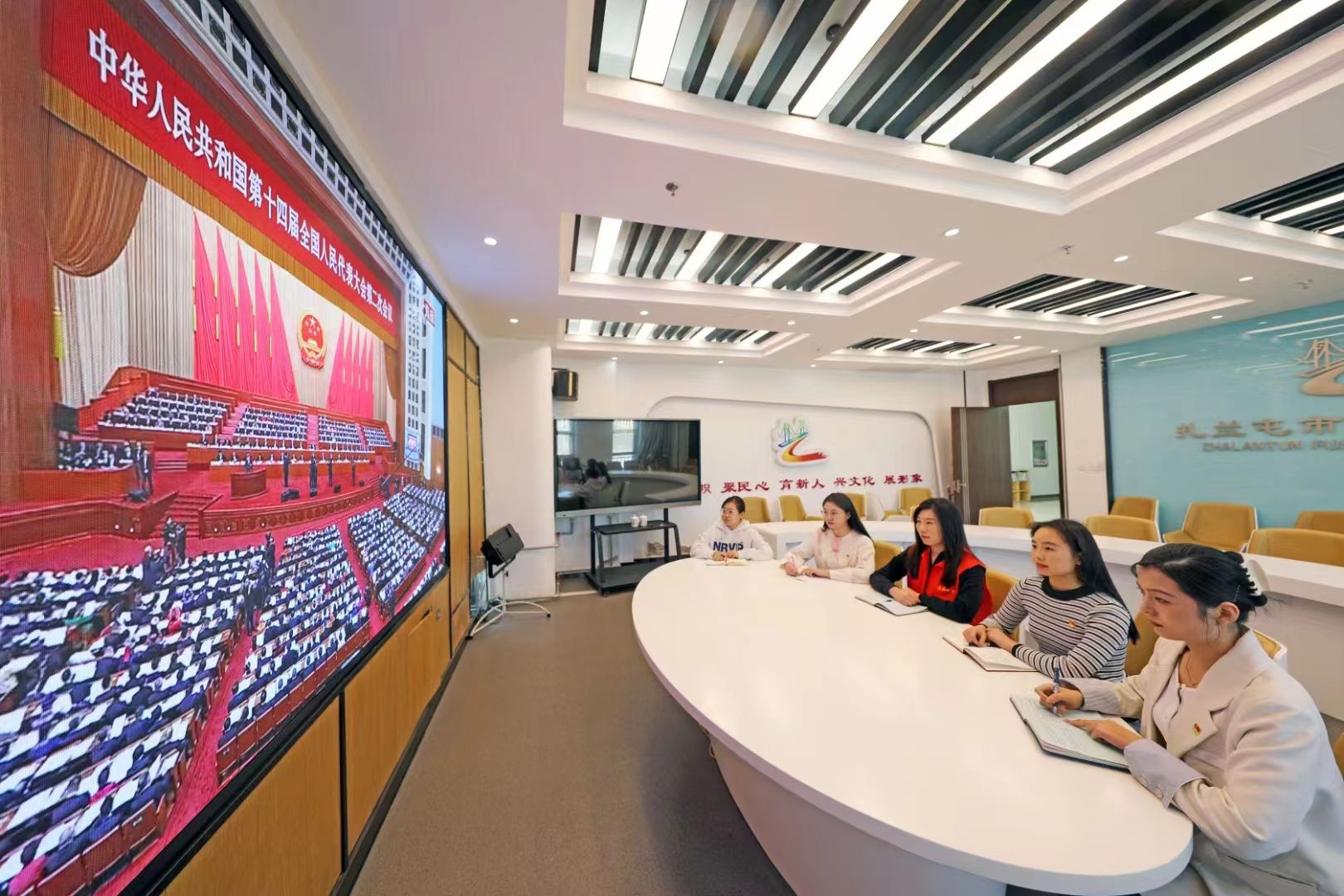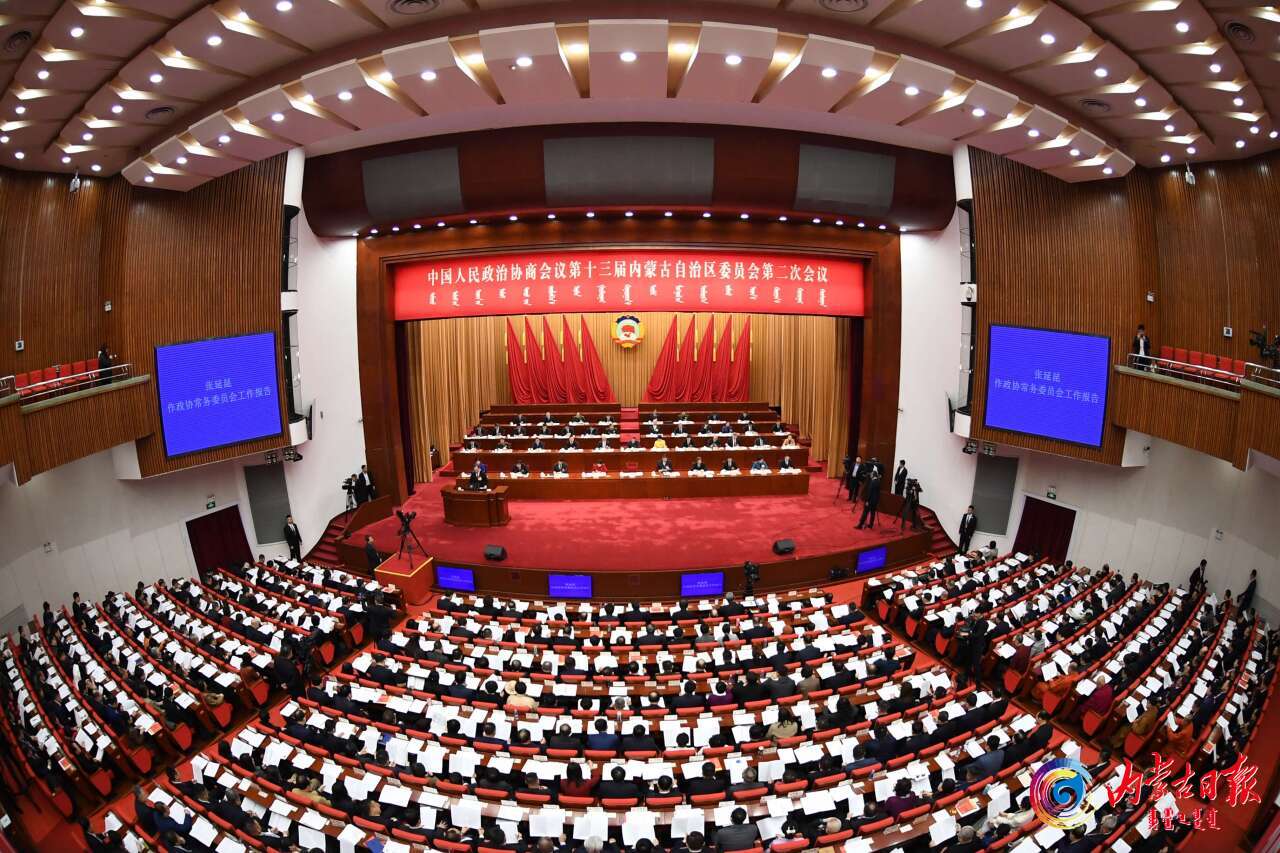In truck with the world

Heavy-duty trucks are readied for dispatch at the assembly line of a Beiben Trucks Group Co Ltd's manufacturing unit. [Photo provided to China Daily]
Beiben Trucks Group Co Ltd is expanding its business to Africa, Southeast Asia and South America this year, and looking to retain existing customers by offering quality products and improved services.
The truck manufacturer, based in Inner Mongolia autonomous region, reported orders for 466 heavy trucks worth 158 million yuan ($24.77 million) from overseas markets in the first quarter of this year, up 8.4 percent year-on-year. The orders accounted for about 8.5 percent of the group's total sales.
In overseas markets, Beiben competes with major Chinese manufacturers such as China National Heavy Duty Truck Group Corp, also known as Sinotruk, and FAW Jiefang Automotive Co, as well as global truck brands including Germany-based Man Se and Czech manufacturer Tatra.
Beiben is a subsidiary of China North Industries Group Corp, a State-owned enterprise that makes high-tech defense products as well as civilian products. The latter bought out Beiben's previous owner Inner Mongolia First Machinery Group in 2013.
Even as far back as in 1988, Beiben's previous owner had introduced advanced manufacturing technology and equipment from the German company Daimler-Benz.
"Beiben's products have been gradually gaining popularity in developed markets," Jin Xin, vice general manager of Beiben's imports and exports unit, said.
The group is seeking to sell at least 2,800 heavy trucks this year to 10 key markets, including Kenya, Cameroon and Mongolia. "We will try to rack up sales of 3,000 trucks," Jin said.
In 2017, Beiben sold around 2,000 trucks (up 30 percent) worth 561 million yuan to customers in those markets, Wang Baoying, its general manager, said.
To build client loyalty in foreign markets amid intense competition, Beiben is providing customers with better after-sales service and sufficient supply of spare parts, Jin said.
According to him, one of the efficient ways to achieve the goal is to directly export products, instead of relying on third-party trading companies to ship, market and sell the trucks and components abroad.
In January this year, Beiben for the first time exported directly knockdown heavy trucks to Kenya, which were subsequently assembled at its local subsidiary in March.
The Kenya subsidiary is Beiben's fifth overseas knockdown factory, following South Africa, Ethiopia, Myanmar and Iran.
"Exporting directly enables us to communicate directly with the customers so as to offer quality products and services, and to play a synergistic role in research and development, production, marketing and after-sales service in the global market," Jin said. "It is also beneficial to enhance the company's brand image and improve its profitability."
But the current level of direct exports accounts for a small portion of the company's total overseas sales, Jin said, without disclosing details.
Dario Gomez, associate administrator at the Office of International Trade for the US Small Business Administration, said direct exports ensure "long-term growth and success".
Exporters have their say over the entire marketing mix including payment terms, product modification, local support, distribution, and finance options, Gomez was quoted as saying by the Western Union Business Solutions Learning Center.
To establish themselves as direct exporters, companies must determine which countries they want to enter, assess whether their products will sell in those new markets, and adapt their products and packaging to accommodate local customers' needs, according to Gomez.
Last year, China saw sales of 1.11 million heavy trucks, up 52 percent, and a record since 2010, according to the China Association of Automobile Manufacturers.
This year so far, overseas markets continue to hold promise for Chinese heavy truck producers, said a recent report from the Qianzhan Institute for Industrial Research.
As the Belt and Road Initiative advances, the number of infrastructure projects in the participating economies has increased. Chinese heavy trucks have been exported to local users and Chinese-funded engineering companies, according to the report.
Lured by the vast potential, major commercial vehicle manufacturers are racing to grab market share.
Sinotruk has been the largest Chinese exporter in the industry over the past decade. Between January and November 2017, Sinotruk exported 33,000 vehicles. During the same period, Sinotruk's heavy truck exports accounted for about 50 percent of China's total.
Asked about Beiben's advantages amid fierce competition, Jin said the group has been fueling technological innovation, while advancing the integration of products for military and civilian uses in recent years.
According to him, a type of Beiben's tractors with enhanced capabilities have achieved several breakthroughs, and sell well in markets like Singapore and Chile.
The tractors' performance could rival advanced models made by European and US companies, according to Jin.
In a few days' time, Beiben plans to deliver another type of tractors designed for complex conditions to Singapore clients. The vehicles meet Euro 6 emission limits, the highest emissions standard imposed by the European Union, with the aim of improving air quality.
Liu Zhiyuan, secretary general of the Beijing-based Transcontinental Research Institute, said Chinese firms seeking overseas expansion in economies involved in the Belt and Road Initiative need to unite to build a risk-prevention system.
An effective way for Chinese companies to prevent potential risks and lower operational costs is to seek enhanced cooperation with local partners, Liu said. "The collaboration can be conducive to fueling local economic development and improving the livelihood of local people."



 Print
Print Mail
Mail





